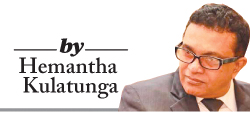 During a span of 20 years, information and communication technology (ICT) has precipitously developed, with the key development being the emergence of social media. The pace of change is unbelievably swift. For example, the change and development in mobile technology, perhaps the most utilised tool in communication, now dominates communication flow around the globe, particularly through social media, creating an immensely large positive and negative impact.
During a span of 20 years, information and communication technology (ICT) has precipitously developed, with the key development being the emergence of social media. The pace of change is unbelievably swift. For example, the change and development in mobile technology, perhaps the most utilised tool in communication, now dominates communication flow around the globe, particularly through social media, creating an immensely large positive and negative impact.
Social media has emerged as a powerful tool for communication, information dissemination, and social interaction in Sri Lanka, like many other countries. However, the rapid growth of social media platforms has also raised concerns about the spread of misinformation, hate speech and the potential for social unrest.
While social media activism raises awareness about societal concerns, it is unclear if this awareness results in genuine change. Some claim that social sharing has enabled persons to utilise computers and mobile phones to voice their worries about social issues without having to physically participate in campaigns, political or otherwise.
Their assistance is restricted to clicking the ‘Like’ button and sharing material. Sri Lankan citizens have learned bitter lessons due to slacktivism recently on more than one occasion where the societal opinion created through social media went awry, resulting in deepened social rifts that have negatively affected democratic processes and created gruesome common hardships for the citizenry.
On the bright side, social media has brought many optimistic changes to Sri Lankan society. Among its many benefits, it has enabled easier communication and connections between persons. People can now stay in touch with society more conveniently and more frequently. It has also been a powerful tool for raising awareness about social and political issues, mobilising communities and facilitating worthy social movements.
Social media has played a crucial role in mobilising and organising social movements and activism, helping good causes for society at large. It has enabled activists who are engaged in helping people reach wider audiences, document events, and coordinate actions to attract assistance more effectively.
Fraudulent news
Information overload accompanied by fabricated and fraudulent news has emerged during the past few years in Sri Lanka to designate the fake news produced and published by mass communication vehicles such as social platforms. Such fake news has increasingly become a part of our daily lives. Fake news multiplies rapidly and acts as narratives that exclude or include information about facts.
One of the primary reasons for considering social media regulation in Sri Lanka is the proliferation of false information and misinformation. False rumours and misleading content can spread rapidly through social media, leading to confusion, panic, and even violence. From a simple private incident to a grave crime, it may develop into a national crisis through the spread of false information on social platforms.
On hate speech, the United Nations says that “there are historical precedents showing that hate speech can be a precursor to atrocity crimes”. In this context, Sri Lanka has a bleak history of ethnic tensions that has led to extreme situations more than once.
Social media platforms have sometimes been used as tools to incite hatred and violence in almost all those occurrences. This is distinct proof that hate speech targeting ethnic or religious groups can escalate conflicts and disrupt societal harmony.
Disinformation spread through social media provokes violence and intolerance. The devastating effect of hatred is sadly nothing new to Sri Lankan society. However, its scale and impact are now amplified by new communications technologies.
Social media posts on ethnic discrimination have become one of the most common ways of spreading divisive rhetoric, threatening peace in the country and around the world. Therefore, regulating social media is seen as a way to curb hate speech and prevent the incitement of violence.
During the past decade, instead of using social media as a peacebuilding instrument, questionable elements have seemingly taken advantage of social platforms to create disorder in society. Because of its enormous reach and extreme swiftness, any sneaky pressure group can spread misinformation or disinformation, creating chaos in a peaceful society.
Social media has given rise to different opinions and factors that control societal behaviour and attitude. Sri Lankans have become an angry society, hailing abuse at one another through social media, even on irrelevant and insignificant matters. Subjective personal opinions are published on social media platforms, offering little or no regard for individual privacy.
In an effort to regulate discriminating social media, the government is attempting to introduce the Online Safety Bill to promote digital security, curtail online misinformation, promote media ethics, and enhance online safety. However, a large number of organisations and persons (45 petitions, according to the Speaker of Parliament) have filed against the proposed legislation at the Supreme Court.
Constitutional rights
Unsurprisingly, there is vehement resistance against the Act from various groups who fear that it will negatively affect freedom of expression. Some critics opine that although the intention of the Government is to regulate content and augment user safety, such regulations could weaken the constitutional rights of people.
The Bill was introduced through the Government’s gazette in September. The proposal is to establish an Online Safety Commission with powers to define, regulate, and prosecute ‘false statements’ made online.
The commission, comprising five members appointed and dismissed directly by the President, has the authority to order internet service providers to remove or restrict access to false or prohibited content based on members’ reasoning.
The commission has the power to investigate and prosecute violators. One of the biggest challenges in regulating social media is striking a balance between safeguarding national interests and preserving the fundamental right to freedom of expression.
Determining the scope of social media regulation is complex. Identifying specific content that should be regulated while avoiding overreach or censorship is challenging. Striking the right balance between permissible and restricted content requires careful consideration. It will certainly face daunting challenges if the Bill becomes law.
Technical challenges will be another area the government will encounter in enforcing social media regulations, as it requires a deep understanding of the technical aspects of these platforms. Tracking and monitoring content, particularly on encrypted platforms, can be difficult. The government would need to invest in technology and expertise to effectively regulate social media.
There is no doubt that misinformation and disinformation on social media can lead to false beliefs, poor decision-making, and even influence public opinion, undermining informed discourse and decision-making. Constant exposure to idealised images and lifestyles on social media can lead to unrealistic expectations and negative self-perception.
Regulation of social media in Sri Lanka is a complex issue that requires a delicate balance between safeguarding national interests and preserving the fundamental right to freedom of expression.
While there are clear benefits to regulation, such as curbing misinformation and hate speech, there are also significant challenges, including defining the scope of regulation and ensuring technical feasibility.









